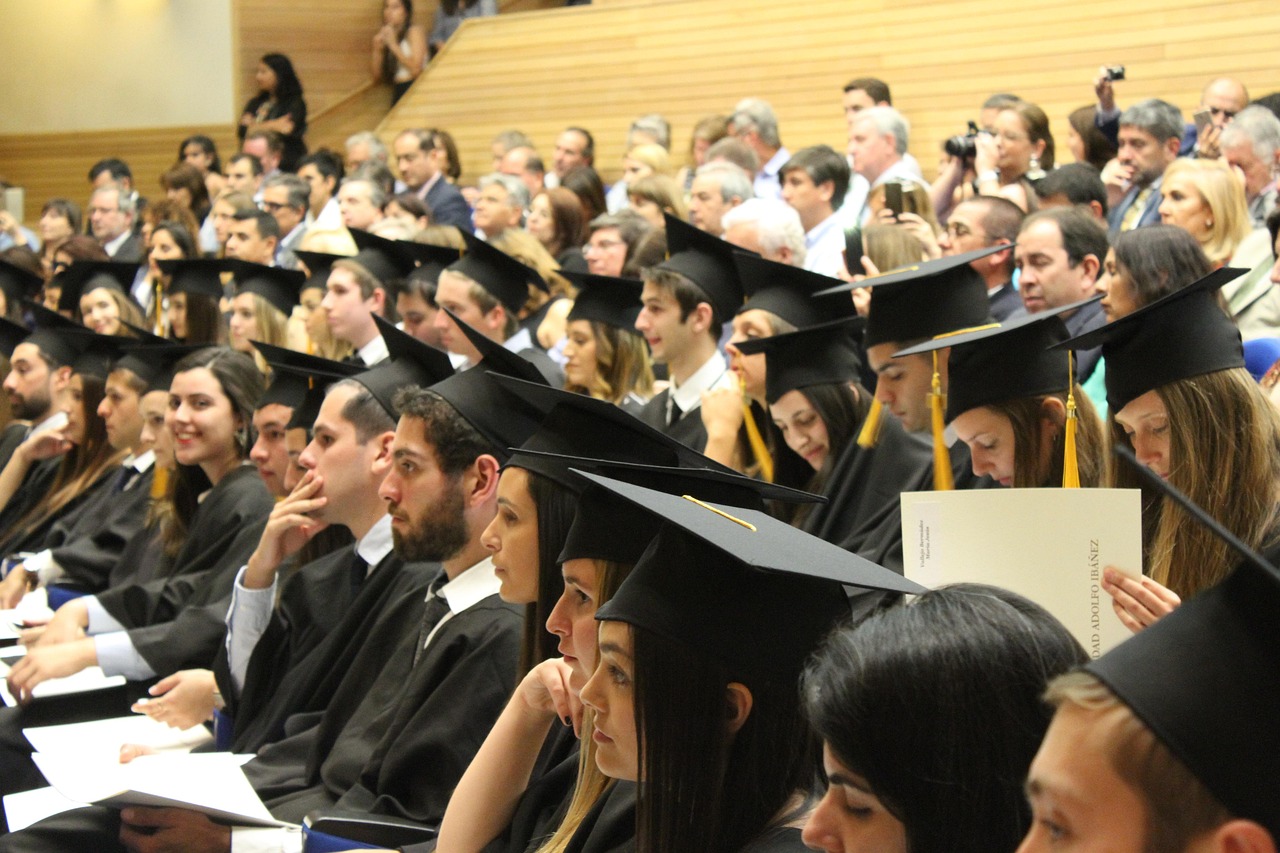
Introduction
Choosing the right college course in the Philippines is one of the biggest decisions for every student. It determines not only what you will study for the next few years but also shapes your future career opportunities. With the wide variety of degree programs and certificate courses available across public and private universities, students can pursue their passions in fields such as business, education, health sciences, engineering, information technology, and more. In this comprehensive guide, we’ll explore the different types of college courses in the Philippines, how they are classified, the top universities offering them, and key tips to help you make the best decision for your future.
What “Course” Means in the Philippines
In the Philippine education system, the term “course” typically refers to a degree program, not just a single subject. For example, Bachelor of Science in Nursing (BSN) is a course, while individual subjects like Anatomy or Microbiology are considered part of that course.
There are two main types of courses in the country:
- Degree Programs – Full programs leading to an associate, bachelor’s, master’s, or doctorate degree.
- Certificate Programs – Shorter, skills-based programs often offered by TESDA (Technical Education and Skills Development Authority), usually lasting from a few weeks to several months.
Types of Degree Programs in the Philippines
1. Associate Degrees
- Duration: 2–3 years
- Ideal for students who want a quicker entry into the workforce or a stepping stone before pursuing a bachelor’s degree.
- Example: Associate in Computer Technology, Associate in Hotel and Restaurant Management.
2. Bachelor’s Degrees (Undergraduate Programs)
- Duration: 4–5 years depending on the program.
- The most common and widely recognized type of college course in the Philippines.
- Examples: BS in Accountancy, BS in Civil Engineering, Bachelor of Elementary Education, BS in Psychology.
3. Master’s Degrees (Graduate Programs)
- Duration: 1–2 years after completing a bachelor’s degree.
- Designed for professionals who want to specialize further or advance in their careers.
- Examples: Master of Business Administration (MBA), Master of Arts in Education, Master of Science in Nursing.
4. Doctorate Degrees (Postgraduate Studies)
- The highest level of education, focusing on research, academic leadership, or expert-level professional training.
- Examples: Doctor of Philosophy (PhD), Doctor of Education (EdD), Doctor of Medicine (MD), Juris Doctor (JD).
Classification of College Courses by Discipline
The wide range of Philippine degree programs can be categorized into the following fields:
Formal Sciences
- Mathematics
- Statistics
- Computer Science
- Information Technology
- Information Systems
Humanities
- Philosophy
- History
- Fine Arts (Visual Arts, Sculpture, Painting, Industrial Design)
- Literature and Languages
Natural Sciences
- Biology
- Physics
- Chemistry
- Molecular Biology and Biotechnology
- Geology
- Forestry and Fisheries
- Environmental Science
Applied and Professional Fields
- Business & Economics: Accountancy, Business Administration, Entrepreneurship, Tourism Management
- Engineering & Architecture: Civil, Mechanical, Electrical, Chemical, Architecture, Industrial Design
- Health Sciences: Nursing, Pharmacy, Medical Technology, Physical Therapy
- Education: Secondary Education, Elementary Education, Special Education, Early Childhood Education
- Law & Public Administration: Political Science, Public Administration, Legal Management
- Mass Communication & Media: Journalism, Broadcasting, Multimedia Arts
- Criminal Justice: Criminology, Forensic Science, Public Safety
Social Sciences
- Psychology
- Sociology
- Anthropology
- Economics
- Political Science
- Linguistics
- Filipino Studies
Top Universities Offering College Courses in the Philippines
University of the Philippines (UP System)
- Known as the country’s national university and home to some of the best degree programs in the Philippines.
- Offers courses in engineering, sciences, arts, humanities, social sciences, and business.
- Flagship campus: UP Diliman.
Polytechnic University of the Philippines (PUP)
- Offers affordable education with a strong focus on professional courses.
- Popular programs: Accountancy, Business Administration, Engineering, Education, Communication, Computer Science, Law.
Other Universities Nationwide
- University of Batangas – Business, Criminology, Nursing, Law.
- Liceo de Cagayan University – Nursing, Pharmacy, Medical Laboratory Science, Arts & Sciences.
- Aurora State College of Technology – Agriculture, Forestry, Engineering, Hospitality, IT.
- Capiz State University – Education, Agriculture, Engineering, Graduate Studies.
How to Choose the Right College Course
When deciding which course to take, consider the following factors:
- Your Interests and Strengths
- Choose a field you are passionate about. For example, if you love numbers, Accountancy or Engineering might suit you.
- Career Opportunities
- Research the industries with high demand in the Philippines and abroad. Popular in-demand courses include Nursing, IT, Engineering, and Business. (See DOLE’s JobsFit Report for updated labor demand trends.)
- Duration and Cost of Study
- Assess whether you prefer short-term TESDA courses or long-term degree programs.
- School Reputation and Location
- Some schools are recognized for their expertise in certain programs. Example: UP for research and science, PUP for mass communication, UST for health sciences.
- Alignment with Senior High School Track
- STEM leads to science and engineering.
- ABM leads to business courses.
- HUMSS leads to education, communication, and social sciences.
Career Opportunities for Graduates
The job market in the Philippines is competitive, but choosing the right course increases your chances of success. Here are some of the top fields with high employability:
- Health Sciences: Nursing, Pharmacy, Medical Technology, Physical Therapy.
- Information Technology: Computer Science, Software Engineering, IT-related jobs.
- Business & Finance: Accountancy, Business Administration, Economics.
- Engineering: Civil, Mechanical, Electrical, and Electronics Engineering.
- Education: Teachers and academic professionals remain in demand across the country.
- Hospitality & Tourism: Hotel and Restaurant Management, Tourism Management.
Conclusion: Your Path to Success Starts Here
The Philippines offers one of the most diverse selections of academic programs in Southeast Asia. From certificate and vocational training to bachelor’s and postgraduate degrees, there is a course designed for every learner.
Selecting the right college course in the Philippines is more than just fulfilling an academic requirement—it is about building a foundation for your professional future. Whether you pursue TESDA short-term courses, engineering programs, health-related degrees, or business and education tracks, your choice will shape your career opportunities and personal growth.
To make the best decision:
- Research the Philippine education system and the universities offering your preferred programs.
- Match your passion with practicality—choose a program that excites you but also provides stability in the job market.
- Think long term—your course today can open doors to opportunities locally and abroad.
Remember, education is an investment. The degree you earn will not just give you knowledge but also credibility, confidence, and career readiness. With careful planning, determination, and the right guidance, your journey through college courses in the Philippines can lead to a rewarding and successful future.
Frequently Asked Questions (FAQs) on College Courses in the Philippines
1. What are the most in-demand college courses in the Philippines?
Some of the most in-demand college courses in the Philippines are related to healthcare, technology, business, and engineering. These include:
- BS Nursing
- BS Information Technology / Computer Science
- BS Accountancy / Business Administration
- BS Civil Engineering / Mechanical Engineering
- BS Tourism and Hospitality Management
These programs are sought after locally and internationally, offering strong career opportunities for graduates.
2. How long does it take to finish a bachelor’s degree in the Philippines?
Most bachelor’s degree programs in the Philippines take four years to complete, although some specialized courses like Engineering, Nursing, Architecture, and Law may take five to six years. For those who want to work sooner, associate degrees and TESDA vocational courses offer faster alternatives.
3. What is the difference between TESDA courses and college degree programs?
- TESDA courses: Short-term, skills-focused, usually lasting weeks to months. Perfect for students seeking immediate employment in industries such as IT, construction, hospitality, or automotive.
- College degree programs: Long-term, academically comprehensive, usually lasting 2–6 years, and often required for professional careers in medicine, law, engineering, education, or business.
Both pathways are valuable—it depends on your career goals and timeline.
4. Which senior high school strand should I take for my desired college course?
The K–12 program in the Philippines is designed to align with college programs:
- STEM Strand – Engineering, Medicine, Natural Sciences, IT.
- ABM Strand – Business Administration, Accountancy, Entrepreneurship, Tourism.
- HUMSS Strand – Education, Psychology, Communication, Political Science.
- TVL Strand – TESDA-related vocational and technical courses.
Choosing the right strand makes the transition to your chosen college course smoother.
5. What are the highest-paying courses in the Philippines?
Some of the highest-paying degree programs in the Philippines include:
- BS Accountancy (leading to CPA careers)
- BS Nursing (especially for those working abroad)
- BS Civil/Mechanical Engineering
- BS Information Technology / Computer Science
- Doctor of Medicine (MD)
- Law (Juris Doctor)
These courses often require more years of study but lead to lucrative and stable career paths.
6. Can I shift courses once I start college?
Yes, students in the Philippines may shift courses if they feel their current program doesn’t fit their interests or career goals. However, shifting may result in additional years of study depending on subject credits that can be carried over. It’s best to consult with your school registrar or guidance counselor before making a decision.
7. What is the difference between private and public universities in the Philippines?
- Public universities (like University of the Philippines, Polytechnic University of the Philippines, and Mindanao State University) usually offer lower tuition fees and are subsidized by the government. Admission is competitive.
- Private universities (like Ateneo de Manila University, De La Salle University, and University of Santo Tomas) generally charge higher tuition but may offer more specialized facilities, scholarships, or international linkages.
Both types produce excellent graduates, so the choice depends on your budget, location, and preferred program.
8. Are online degree programs available in the Philippines?
Yes. Since the pandemic, many universities have started offering online or blended learning programs. Schools like UP Open University and other private institutions provide online degrees, making education more accessible for working students and those living far from campuses.
Final Note
With the variety of college courses in the Philippines, every student has the opportunity to find a program that matches their skills, interests, and career goals. Whether you aim for a short-term TESDA certificate or a full bachelor’s degree, the right course can open doors to personal growth and professional success.
Related Articles:
– Preparing Your Child for College: A Step-by-Step Guide
– Best Productivity Apps for Students and Professionals
– 10 Things to Know Before You Retire
– Comprehensive Guide to Teachers Salary Grades in the Philippines
– Guide to Calculating General Weighted Average (GWA)

